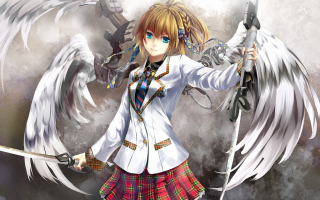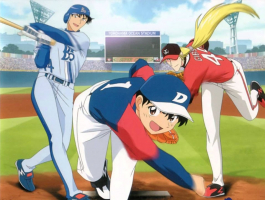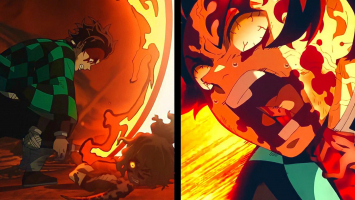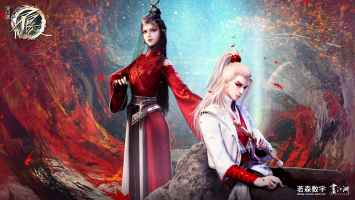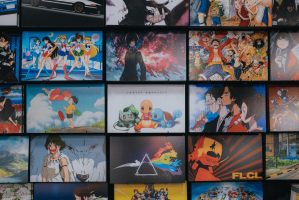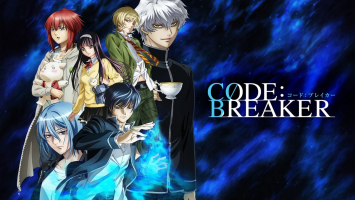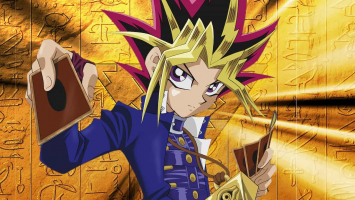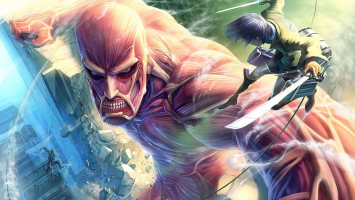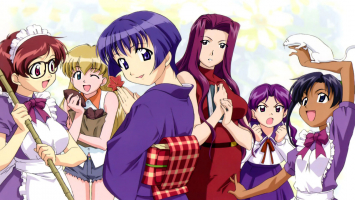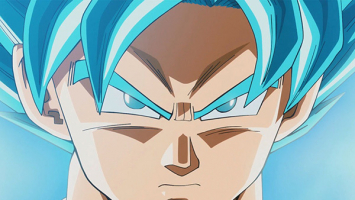Top 15 Best Saddest Anime of All Time
Anime has the remarkable ability to touch our hearts and evoke powerful emotions, and one of the most profound emotions it can evoke is sadness. In this list, ... read more...you'll explore some of the most emotionally resonant and heart-wrenching anime series and films that have left a significant mark on the world of animation.
-
"Fullmetal Alchemist: Brotherhood" is about alchemy's realization, return, and sacrifice in the fictional world of Amestris. The story follows Edward and Alphonse Elric, two brothers who suffer great loss when their metalbending experiment to reincarnate their mother fails. Edward lost all his limbs and Alphonse was strapped into a suit of armor. Determined to restore their bodies and uncover the mystery of the Knowledge Stone, they embark on a perilous journey that takes them into the heart of a nation filled with corruption and war.
"Fullmetal Alchemist: Brotherhood" was brought to life by the renowned animation studio, Bones. With its expertise in crafting compelling anime series, Bones ensured that "Fullmetal Alchemist: Brotherhood" not only captured the intricate storytelling and emotional depth of the original manga but also delivered stunning visuals and fluid animation.
"Fullmetal Alchemist: Brotherhood" emerges as a masterpiece of universal navigation. Its ability to evoke tears of both sadness and purification particularly highlights its special power to empathize with human experience. An excellent example of the saddest and most influential anime, "Fullmetal Alchemist: Brotherhood" not only showcases the complexities of its characters but also penetrates the moral complexities of existence. It stands as testament to the power of stories to spark empathy and make people think deeply, leaving a lasting impression on those who witnessed this poignant journey.
Directed by: Yasuhiro Irie
Air Dates: April 5, 2009
IMDb Rating: 9.1

Screenshot of https://www.imdb.com/title/tt1355642/ Bonfire Trailer Studio's Youtube Channel -
"Death Note" introduces a world where a simple notebook wields unimaginable power. Light Yagami, a brilliant and disillusioned high school student, stumbles upon the Death Note, a supernatural tool that grants its wielder the ability to cause death with just a name and a face. As Light embraces his newfound power and adopts the moniker Kira, he embarks on a crusade to cleanse the world of criminals. The cat-and-mouse game between Kira and the brilliant detective L sets the stage for a morally complex and emotionally charged narrative.
"Death Note" is replete with characters whose emotional depth leaves an indelible mark:
- Light Yagami (Kira): The protagonist-turned-antagonist, Light's descent into darkness is a harrowing journey through his internal conflict and quest for ultimate justice.
- L: The enigmatic detective L is a foil to Light, with his unconventional methods and mysterious past. His interactions with Light amplify the intricate cat-and-mouse dynamics of the series.
- Misa Amane: A devoted follower of Kira, Misa's infatuation with Light underscores the tragic toll the Death Note takes on its wielders.
"Death Note" orchestrates of moral dilemmas, blurring the lines between right and wrong. It delves deep into the psychological turmoil of its characters, particularly Light, as he wrestles with the ethical implications of playing god and becoming a force of judgment. The intellectual chess match between Light and L serves as a canvas for exploring the darkest corners of human ambition and the consequences of wielding absolute power.
Directed by: Tetsurō Araki
Air Dates: October 4, 2006
IMDb Rating: 8.9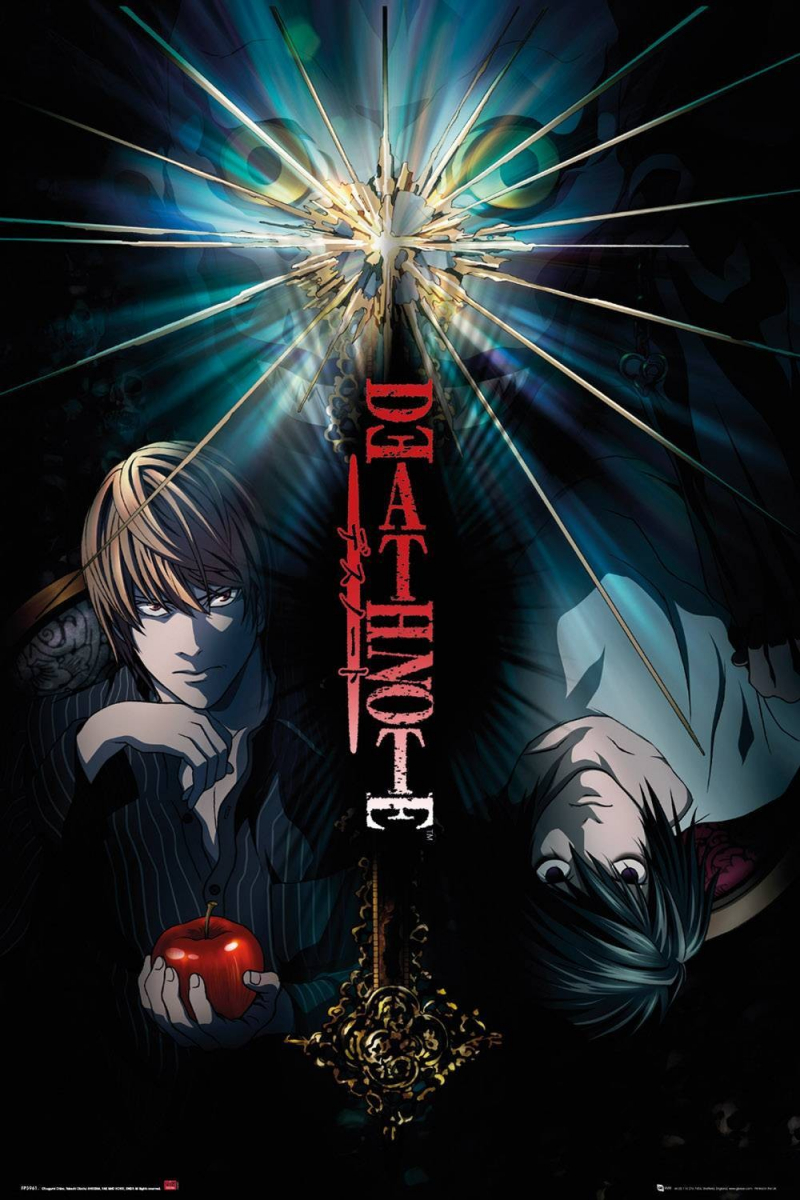
Screenshot of https://www.truyentranhphapbi.com/2020/02/death-note-truyen-mau-chuong-1.html Crunchyroll Collection's Youtube Channel - Light Yagami (Kira): The protagonist-turned-antagonist, Light's descent into darkness is a harrowing journey through his internal conflict and quest for ultimate justice.
-
"Your Lie in April" resonant narrative and evocative portrayal of human experiences immerse viewers in a symphony of emotions that reverberate long after the final notes fade.
"Your Lie in April" follows the poignant journey of Kōsei Arima, a once prodigious pianist whose world was filled with music and color. Tragedy strikes when his mother's death shatters his ability to hear the piano's notes, plunging him into a world of monochrome silence. Years later, he crosses paths with Kaori Miyazono, a vivacious violinist who injects life and vibrancy into his existence. Their shared passion for music, coupled with their personal battles, paves the way for a tale of love, loss, and the pursuit of dreams amidst the inevitability of sorrow.
"Your Lie in April" resonates with a profound message about the human capacity to find beauty and hope amidst pain and suffering. It's a poignant exploration of how art, love, and friendship can mend the broken pieces of a wounded heart. The series underscores the impermanence of life's joys and the bittersweet nature of existence, urging viewers to embrace every fleeting moment and cherish connections that shape their lives.
Directed by: Tetsurō Araki
Air Dates: October 4, 2006
IMDb Rating: 8.6
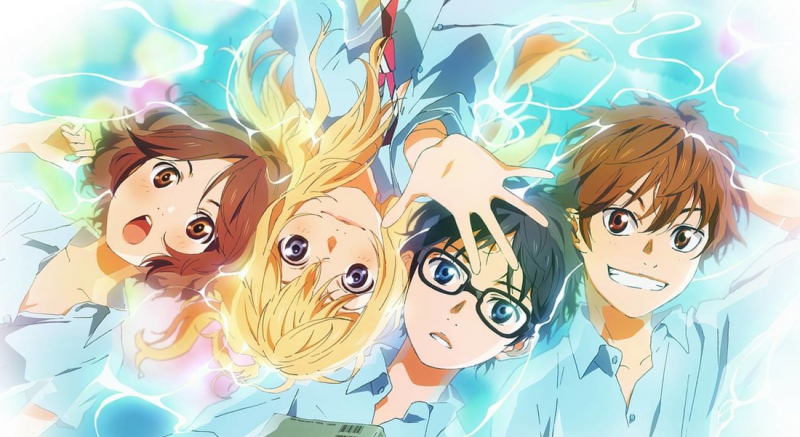
Screenshot of https://www.imdb.com/title/tt3895150/ フジテレビ公式's Youtube Channel -
"Grave of the Fireflies" is a profound expression of deep sadness. This film is a haunting and vivid representation of the devastating consequences of war on innocent lives. Set in Japan during World War II, the narrative follows Seita and Setsuko, siblings thrust into a world of turmoil and despair when their home is destroyed by a firebombing attack. Without their parents' protection and their family torn apart, they navigate a harsh and unforgiving world, struggling to find food, shelter, and a glimmer of hope in the midst of wartime darkness.
Seita and Setsuko are the core of "Grave of the Fireflies." Seita, the older brother, carries the burden of responsibility and the challenge of providing for his sister in a world that has forsaken them. Setsuko, a symbol of innocence, confronts the harsh realities of life with bravery and unwavering determination. Their unbreakable bond, forged in the crucible of adversity, becomes a poignant representation of the lengths people will go to protect and care for their loved ones.
"Grave of the Fireflies" masterfully weaves a tapestry of desolation, capturing the entire spectrum of human suffering amid the ravages of war. The film's power lies in its ability to elicit empathy for its characters, whose anguish and heartache reflect the harsh realities of war.
Directed by: Isao Takahata
Air Dates: April 16, 1988
IMDb Rating: 8.5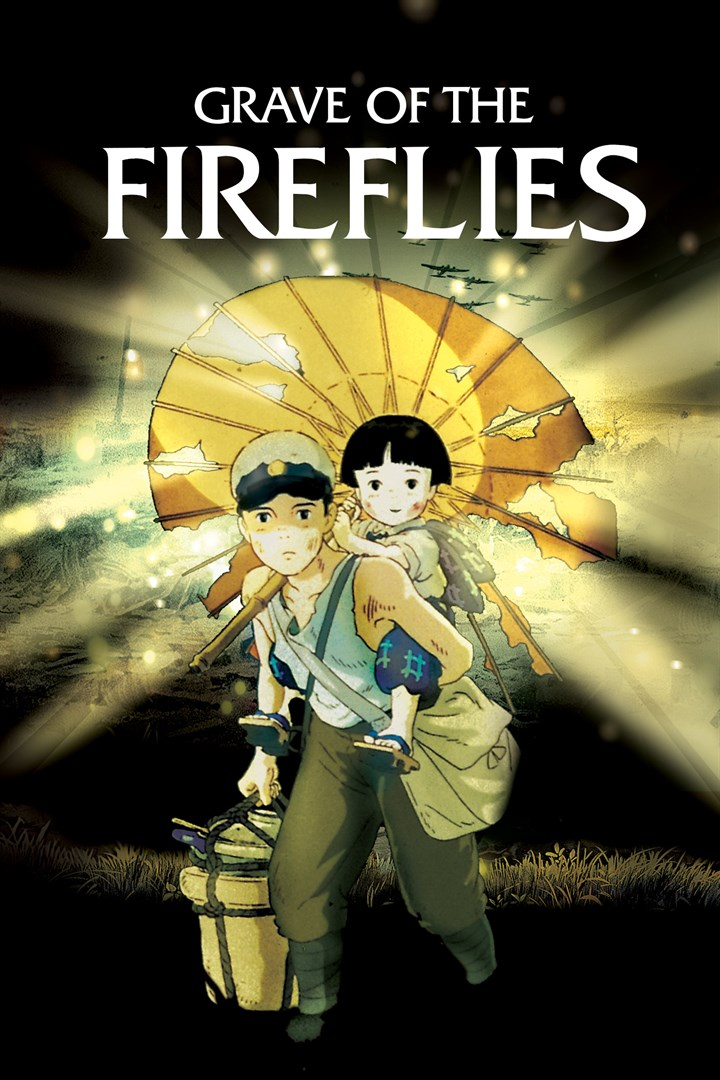
Screenshot of https://www.imdb.com/title/tt0095327/?ref_=fn_al_tt_3 Crunchyroll Store Australia's Youtube Channel -
"Anohana" does a great job of creating realistic characters who each deal with their own sorrows and personal growth. Jintan, burdened by guilt and haunted by Menma's ghost, changes from being a withdrawn loner to becoming a source of healing for his friends. Anaru, who initially conforms to societal expectations, discovers her own voice and self-worth. Yukiatsu's tough exterior crumbles, revealing his vulnerability. Tsuruko's reserved demeanor hides her lingering emotions. Poppo struggles with survivor's guilt, while Menma's spirit represents innocence along with a sincere desire to mend her friends' broken bonds.
The series skillfully explores grief, regret, and longing, creating a sense of sadness that stays with you even after the show ends. Each character's emotional journey is a testament to the raw and unfiltered sadness that comes with loss. The pain, unresolved conflicts, and bittersweet memories all contribute to the mix of emotions that define "Anohana."
The visual style of "Anohana" combines otherworldly beauty with emotional depth. The characters' expressions are carefully crafted to convey their emotions without the need for words. The charming hometown setting, set against the characters' inner struggles, serves as a poignant reminder of the passage of time and the weight of their memories. Additionally, the sound design of "Anohana" plays a crucial role in its emotional impact. The moving soundtrack seamlessly fits into the story, enhancing the emotional impact of key moments.
Directed by: Tatsuyuki Nagai
Air Dates: April 15, 2011
IMDb Rating: 8.2
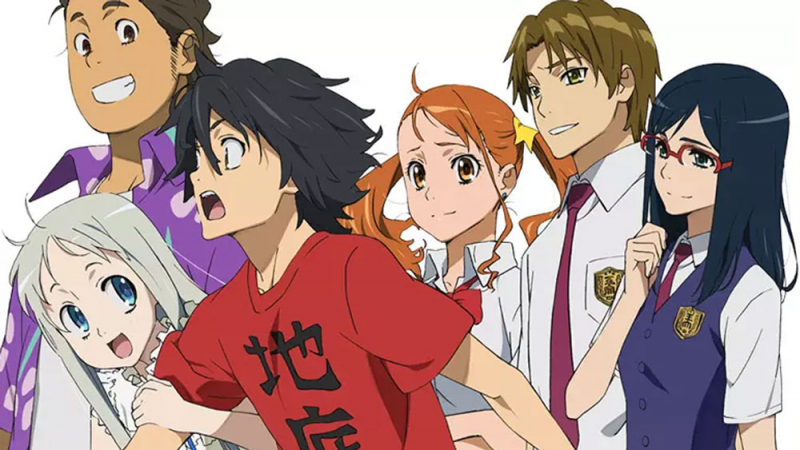
Screenshot of https://www.xn--42cg4brar9e8am5cwcsq2ij7hgo.com/review-anohana/ Anime Clips' Youtube Channel -
The world in "A Silent Voice" is created with great attention to detail, showcasing the complexity of the characters' feelings. The animation captures the subtleties of body language, facial expressions, and visual cues, effectively conveying the depth of each character's inner turmoil. The setting mirrors both the external environment and the characters' inner emotional landscapes, blending the backdrop with their emotional journeys.
"A Silent Voice" unfolds a story of redemption, forgiveness, and the search for self-awareness. The plot centers around Shoya Ishida, a young man haunted by guilt over his past mistreatment of a deaf girl named Shoko Nishimiya. Once a bully, Shoya embarks on a journey of remorse as he strives to make amends and seek redemption. Through their intertwined lives and the complexities of human connections, the film explores themes of empathy, acceptance, and the profound impact of people's actions on others.
"A Silent Voice" conducts a symphony of emotions, with sadness being a prominent theme. The movie delves into subjects like regret, isolation, and the longing for redemption. Shoya's transformation from a remorseful bully into an individual eager to bridge the gap between himself and Shoko demonstrates the human capacity for personal growth and change. The film's examination of the complexities of human relationships, along with its portrayal of the pain caused by miscommunication, adds layers of emotional depth.
Directed by: Naoko Yamada
Air Dates: September 17, 2016
IMDb Rating: 8.1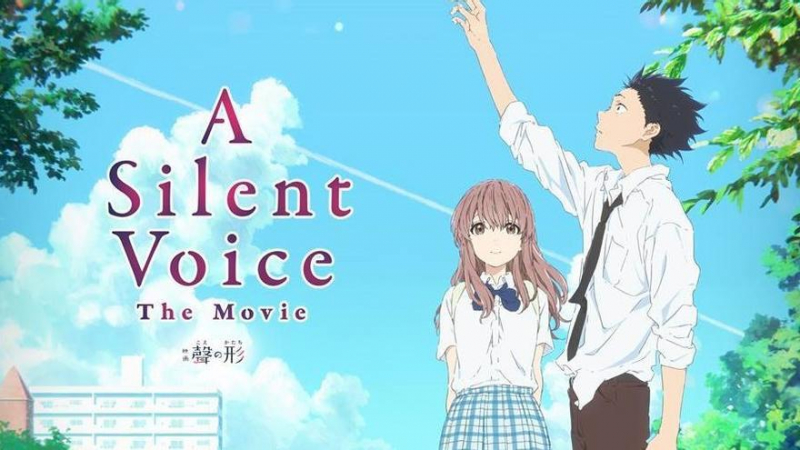
Screenshot of https://vivanicemk.live/product_details/4242177.html Crunchyroll Store Australia's Youtube Channel -
"Wolf Children" creates a world that is both enchanting and firmly grounded in reality. The delicate balance between the human and wolf realms is carefully crafted, showcasing the protagonist's dual existence. The film invites viewers into a realm where the splendor of nature and the struggles of human life coexist, adding depth to the characters' journeys.
Belonging to the drama and fantasy genres, "Wolf Children" seamlessly blends the extraordinary with the everyday. The artwork captures the rustic charm of rural living and the ethereal beauty of the wolf transformation. The character designs, particularly those of the titular wolf children, seamlessly combine human and animal traits, highlighting the intricate connections between the two worlds.
The film explores themes of love, sacrifice, and the challenges of identity, all while evoking a sense of sadness stemming from the characters' emotional trials. Hana's unwavering devotion to her children and the inner conflicts of Yuki and Ame as they grapple with their dual heritage weave a narrative rich in both sorrow and personal growth. As a prime example of one of the most touching and thought-provoking anime, "Wolf Children" transcends its genre, serving as a reminder of the beauty that emerges from life's obstacles and the limitless love that sustains individuals even in times of sorrow.
Directed by: Mamoru Hosoda
Air Dates: July 21, 2012
IMDb Rating: 8.1
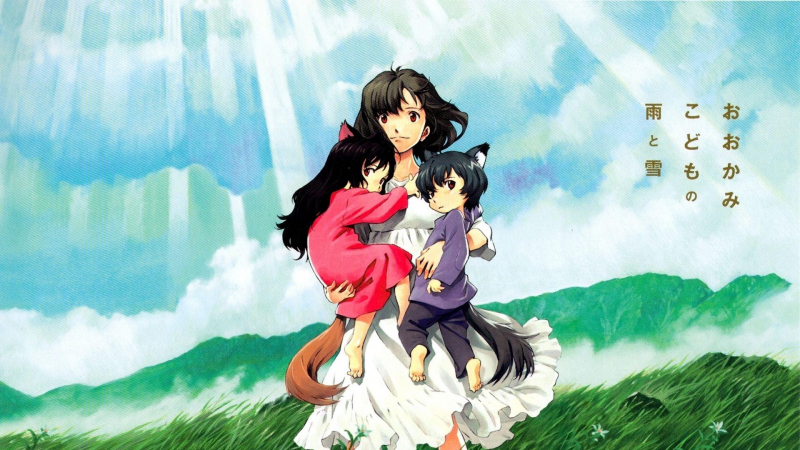
Screenshot of https://www.crunchyroll.com/series/G4PH0WZ1K/wolf-children Crunchyroll Store Australia's Youtube Channel -
"Elfen Lied" serves as an outstanding example of how well-developed characters can make a story exceptional. The series cleverly delves into the complexities of its characters, examining their past traumas, desires, and how they change over time. Lucy, the mysterious Diclonius, embodies a tragic duality as both a victim and a harbinger of destruction. Her profound transformation from a tormented individual to someone struggling with empathy and self-identity is a journey filled with sadness and redemption.
"Elfen Lied" is a unique standout in the world of anime. It breaks from the norm by skillfully blending psychological horror, supernatural elements, and a touching exploration of human psychology. The graphic depiction of violence alongside the characters' fragile vulnerabilities highlights the series' boldness and originality. Its fearless exploration of both darkness and tenderness makes it a truly exceptional work of art.
The pacing and storytelling in "Elfen Lied" contribute significantly to its emotional impact. The gradual unfolding of the plot allows for a deep dive into each character's background and motivations. The slow revelation of Lucy's past and the connections between the characters create a strong emotional connection with the audience. The series expertly balances intensity with introspection, ensuring that every emotional moment resonates deeply.
Directed by: Mamoru Kanbe
Air Dates: July 25, 2004
IMDb Rating: 7.9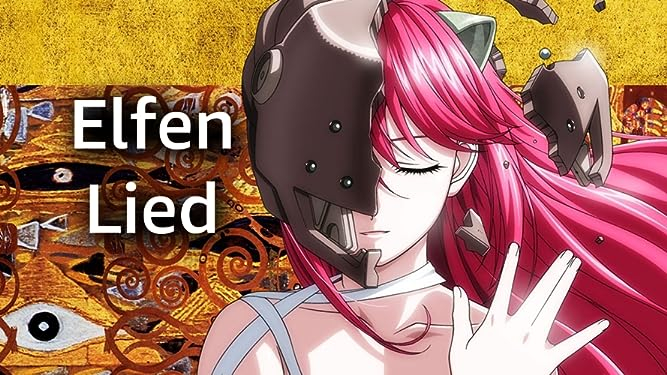
Screenshot of https://www.amazon.com/Elfen-Lied-Season-01/dp/B003B21SP0 Alexfedel1's Youtube Channel -
In the rich world of emotional anime, "Clannad" stands out as a powerful example of storytelling that delves deep into sorrow. Through its expert storytelling and artistry, it creates a lasting sense of profound sadness that lingers even after the screen goes dark.
"Clannad" introduces us to Tomoya Okazaki, a high school student disillusioned by a tragic family history, and Nagisa Furukawa, a girl determined to pursue her dreams despite health challenges. As their lives become intertwined and they form connections with classmates, the series becomes a profound exploration of human relationships, aspirations, and the fragility of life. With a mix of heartwarming moments and heart-wrenching tragedies, "Clannad" paints a picture of life's bittersweet journey. The story delves into the characters' lives, revealing their struggles, dreams, and the bonds that slowly develop among them.
At its heart, "Clannad" delivers a touching message about the enduring strength of human connections in the face of adversity. Through the characters' journeys, it emphasizes the power of love, friendship, and family to heal wounded hearts and bring light to even the darkest moments of life. The series reminds us that amidst life's challenges, it's the relationships we build and the memories we create that last, offering comfort and hope in times of sorrow. "Clannad" weaves a tapestry of life's complexities, exploring themes of regret, forgiveness, and the uplifting force of human empathy.
Directed by: Tatsuya Ishihara
Air Dates: October 4, 2007
IMDb Rating: 7.8
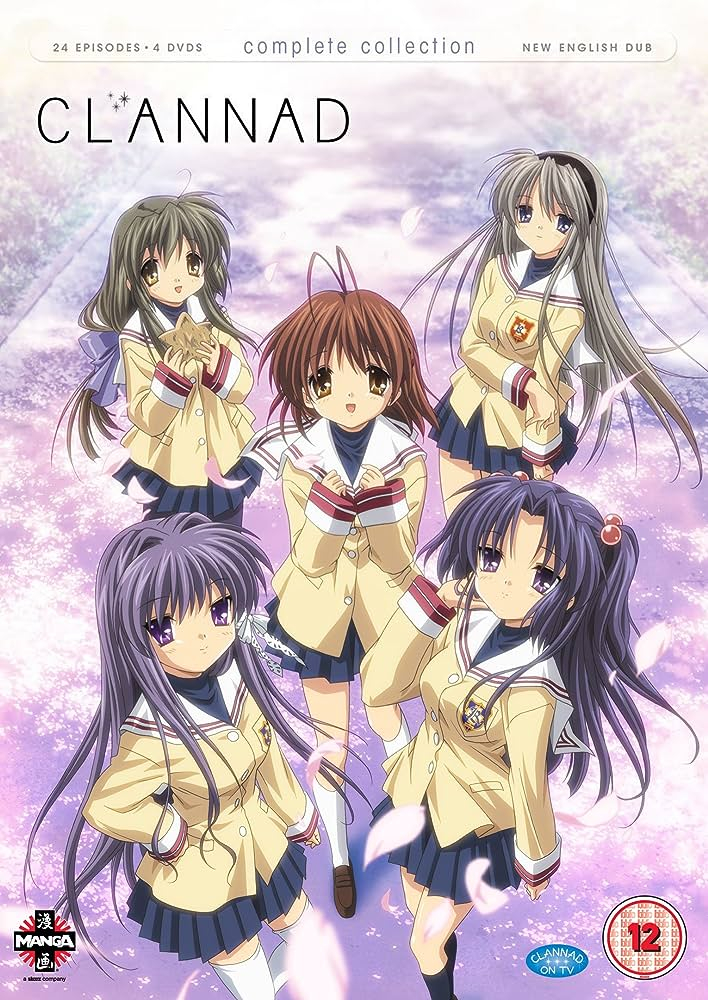
Screenshot of https://www.amazon.com/Clannad-Complete-Series-Collection-DVD/dp/B00CYMMT7Y animelab's Youtube Channel -
"Hotarubi no Mori e" is a story of love and loss set in a mystical forest. The plot follows Hotaru Takegawa, a young girl who, while visiting her uncle's countryside home, stumbles upon a forest inhabited by spirits. In this forest, she meets Gin, a gentle and mysterious spirit who cannot be touched by humans. As their bond deepens over the years, they navigate the complexities of their relationship, marked by the fleeting nature of love and the inevitable farewell that awaits them.
Hotaru's innocence and curiosity guide her journey, while Gin's gentle presence conceals the bittersweet truth that his existence and love are bound by the rules of the forest. Their relationship, rooted in companionship and understanding, brings both joy and heartache as they confront the limitations of their connection and the painful reality of their circumstances.
Furthermore, the film sensitively explores themes of unrequited love, longing, and the impermanence of human life. The poignant contrast between Hotaru's brief visits and the everlasting existence of the forest spirits serves as a reminder of life's fragility and the enduring impact of meaningful connections. The moments shared between Hotaru and Gin are filled with tenderness, leaving a lasting emotional impression long after the film concludes.
Directed by: Takahiro Omori
Air Dates: September 17, 2011
IMDb Rating: 7.8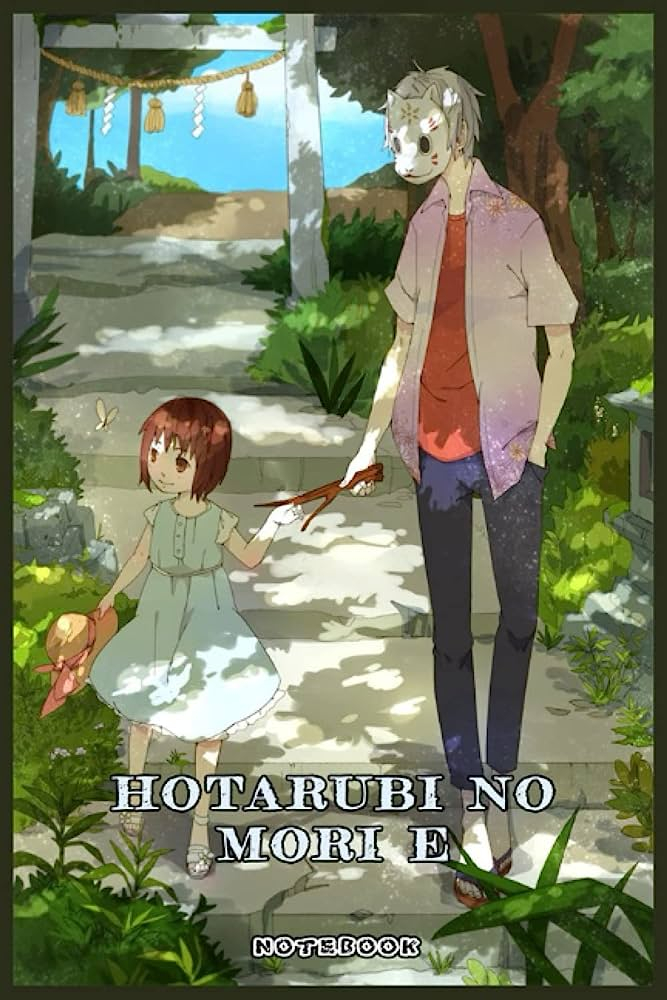
Screenshot of https://www.amazon.com/Hotarubi-Mori-ANIME-MANGA-NOTEBOOK/dp/B0BQ9R665T VitaTheVoiceActress !'s Youtube Channel -
"Tokyo Magnitude 8.0" takes place in modern Tokyo, a busy city where people follow their daily routines like a well-practiced symphony. Suddenly, this peaceful life is shattered by a massive earthquake measuring 8.0 on the Richter scale. The story revolves around siblings Mirai and Yuuki, who find themselves in the midst of chaos as they struggle to get back home after the disaster. During their challenging journey, they meet Mari, a compassionate adult who helps them. Their journey becomes a gripping exploration of human strength, resilience, and the unpredictable nature of life.
"Tokyo Magnitude 8.0" is praised for its honest portrayal of the aftermath of a major earthquake. The careful attention to detail in depicting the destruction and chaos reflects a commitment to authenticity that immerses viewers in the harsh reality of the disaster. Moreover, Mirai, Yuuki, and Mari emerge as complex characters, each dealing with their own internal struggles while facing the external challenges brought on by the catastrophe. Their personal growth is depicted movingly, reflecting the emotional journey of survivors as they cope with grief and search for a new sense of purpose.
Amidst the devastation, the series subtly explores societal issues such as the importance of community, the fragility of modern life, and the bonds that form when people come together in times of adversity. The ruined cityscape symbolizes the fragile appearance of civilization.
Directed by: Masaki Tachibana
Air Dates: July 9, 2009
IMDb Rating: 7.8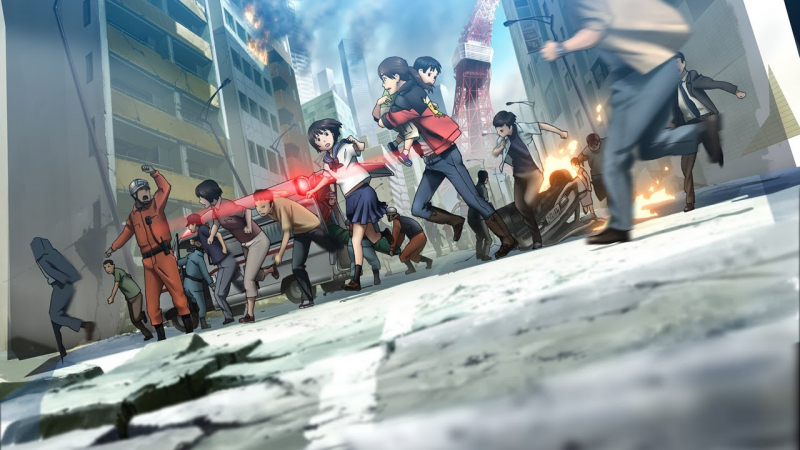
Screenshot of https://www.youtube.com/watch?v=IqhrKb11rEU -
In the vast expanse of emotional storytelling, few works resonate as profoundly as Tokyo Ghoul. Nestled within the genres of supernatural, horror, and psychological, this anime delves into a world teetering on the edge of human and Ghoul coexistence. Kaneki, a college student, is hurled into the abyss when he's transformed into a hybrid after a fateful encounter. As he grapples with his new identity, he embarks on a harrowing journey of self-discovery, unveiling the complex tapestry of his dual nature and the fragile balance of their worlds.
Tokyo Ghoul is a visual marvel that thrusts viewers into a vivid, albeit haunting, realm. The meticulous attention to character design, from the eerie Ghouls to the struggling humans, transports audiences into their visceral universe. The grotesque beauty of Ghouls' transformations and the stark urban landscapes mirror the emotional conflict that rages within.
Moreover, the auditory landscape of Tokyo Ghoul is an integral part of its emotional resonance. The evocative soundtrack heightens the tension and atmosphere, underscoring the psychological and physical battles that unfold. The haunting melodies and heart-pounding rhythms are the invisible threads that weave together the tapestry of despair, resilience, and triumph.
What elevates Tokyo Ghoul to heart-wrenching brilliance is its unflinching portrayal of the characters' profound sadness. Kaneki's internal struggle resonates as he navigates the torturous labyrinth of his identity, torn between the human he was and the Ghoul he's become. The sorrowful journey echoes through every nuanced expression and tear-filled gaze, encapsulating the haunting weight of their existence.
Directed by: Shuhei Morita
Air Dates: July 4, 2014
IMDb Rating: 7.7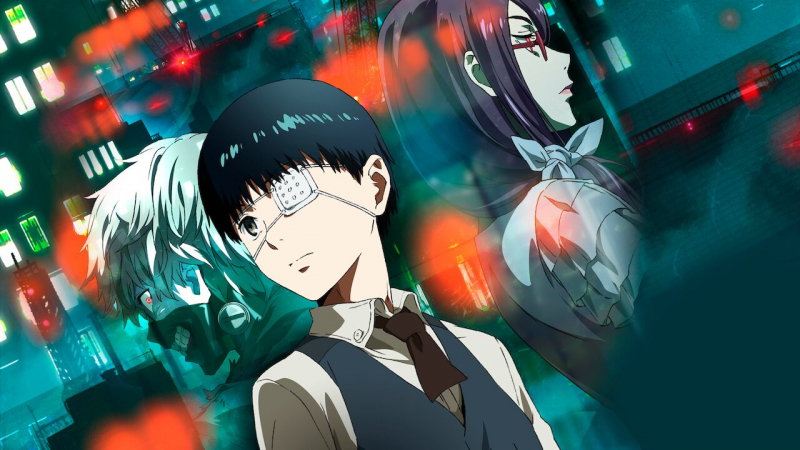
Screenshot of https://www.justwatch.com/za/tv-series/tokyo-ghoul Crunchyroll Store Australia's Youtube Channel -
In the realm of anime that strikes a resonant chord, Angel Beats ascends to unparalleled heights as an exemplar of profound and heartrending storytelling. Angel Beats unfolds in a realm that lies beyond the boundaries of life and death, where a congregation of departed souls becomes entwined in an enigmatic afterlife existence. Within this ethereal backdrop, the enigmatic Angel, a guardian of equilibrium, presides over a world that echoes their mortal lives. But beneath the tranquil facade simmers a cauldron of unexpressed emotions, unresolved regrets, and dormant aspirations.
The cast of Angel Beats is a constellation of vulnerability and depth:
- Otonashi: At the narrative's core, Otonashi embarks on an odyssey through the afterlife, grappling with fragments of memory and a yearning for comprehension.
- Angel (Kanade Tachibana): A figure shrouded in mystery, Angel's presence serves as a catalyst for profound introspection, both for the characters and the audience.
- Yuri Nakamura: An agent of transformation, Yuri's rebellious spirit catalyzes the formation of the "Afterlife Battlefront," a group determined to break free from their constraints.
- Hinata, Yui, and Naoi: Each character carries their unique stories, infused with melancholy and resilience, contributing to the tapestry of emotions.
Angel Beats orchestrates an array of emotions, ranging from heartache to compassion and ultimately, catharsis. Its storytelling prowess lies in its remarkable ability to evoke genuine empathy, blurring the lines between animation and reality. The series confronts the unspoken burdens of remorse and dreams left unfulfilled, touching on aspects of the human experience that resonate universally.
Directed by: Seiji Kishi
Air Dates: April 3, 2010
IMDb Rating: 7.6
Screenshot of https://www.thebobaculture.com/anime/isangelbeatsagoodanime LeeandLie (AmaLee)'s Youtube Channel - Otonashi: At the narrative's core, Otonashi embarks on an odyssey through the afterlife, grappling with fragments of memory and a yearning for comprehension.
-
In the tapestry of animated storytelling, there exist gems that transcend genres and reach deep into the human experience. "5 Centimeters Per Second" is an exemplar of this craft, a work that skillfully weaves a narrative of unfulfilled love and the passage of time. With its evocative visuals and resonant themes, the anime has earned its place as one of the saddest and most impactful creations in the medium.
The anime's visual prowess is immediately apparent. Every frame is a work of art, capturing the delicacy of emotions and the subtleties of the characters' inner worlds. The meticulous attention to detail not only serves the narrative but also transforms the visuals into a medium of storytelling in their own right.
"5 Centimeters Per Second" is a tale of longing and separation. The narrative unfolds across three segments, each portraying the evolving relationship between Takaki and Akari. Their connection is heartrendingly poignant yet perpetually hindered by the physical and emotional distance that time imposes.
The concept of transience is interwoven throughout the narrative. The falling cherry blossoms, the passing seasons, and the changing landscapes become metaphors for the fleeting nature of life and love. This thematic exploration serves as a poignant reminder of the impermanence of human connections. Besides, this anime employs a minimalist approach to sound, relying on ambient noises and soft melodies to create an immersive atmosphere. The absence of bombastic scores emphasizes the solitude and introspection experienced by the characters, enhancing the emotional impact.
Directed by: Makoto Shinkai
Air Dates: March 3, 2007
IMDb Rating: 7.5
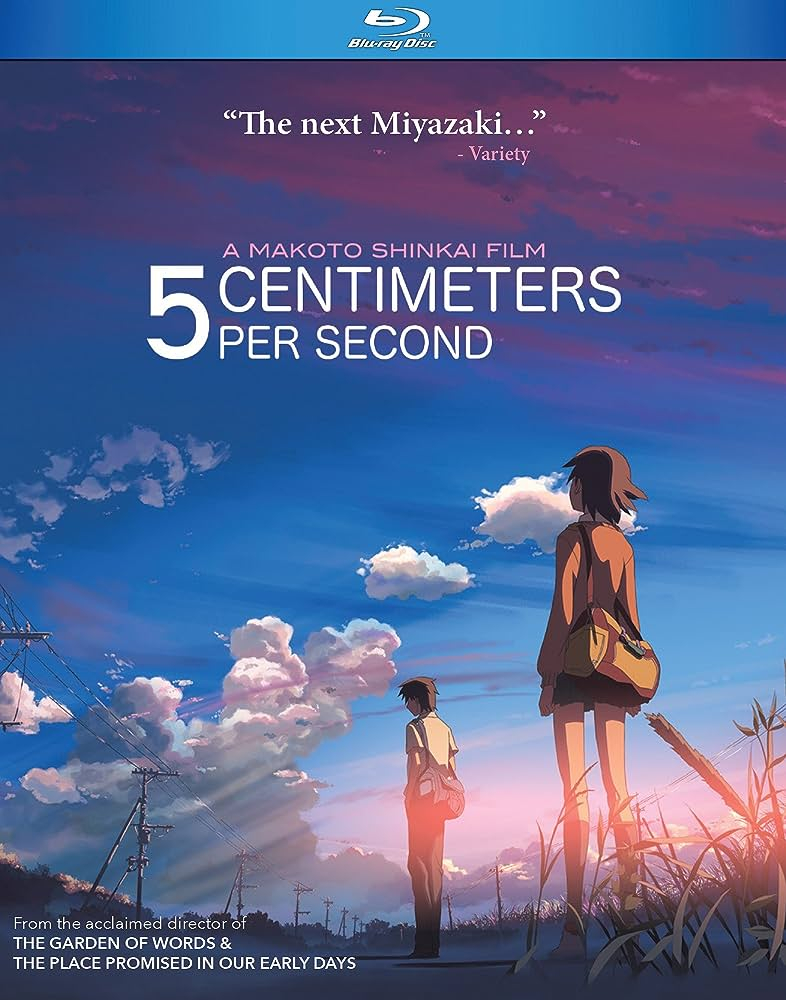
Screenshot of https://www.amazon.com/5-Centimeters-Second-Blu-Ray/dp/B01NBSY65S onikinou's Youtube Channel -
The story follows Tsukasa, a young man assigned to the Terminal Service Department, where he partners with a Giftia named Isla. As Tsukasa and Isla help retrieve Giftias, they form a bond that transcends the artificiality of their existence. The narrative beautifully unfolds as they navigate the complexities of love, inevitability, and the pain of bidding farewell.
"Plastic Memories" delves into the intricate tapestry of human emotions, showcasing the heartache of relationships that must end. The anime masterfully portrays the bittersweet interplay of joy and sorrow, leaving an indelible imprint on the viewer's soul. This film sets in a not-so-distant future, the anime constructs a world where advanced technology blurs the lines between human and artificial life. This backdrop raises profound questions about the nature of existence, the essence of memory, and the price of consciousness.
Beneath the surface, "Plastic Memories" prompts viewers to contemplate the ephemeral nature of existence. It encourages folks to reflect on the impermanence of all relationships, urging everyone to treasure the time folks have with loved ones. This anime unfolds in a world both familiar and fantastical, blending futuristic elements with the familiarity of contemporary life. This juxtaposition serves as a canvas for exploring the implications of technological progress on human emotions. The setting provides a unique vantage point to examine the intersection of humanity and innovation.
Directed by: Yoshiyuki Fujiwara
Air Dates: April 4, 2015
IMDb Rating: 7.3

Screenshot of https://www.hulu.com/series/plastic-memories-558d44b0-8f21-4a96-9080-7828674288b0 All the Anime's Youtube Channel

















